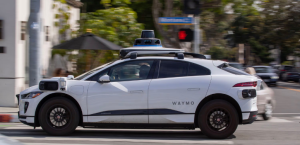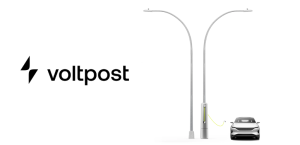New poll research by KPMG in Canada finds that Canadians remain enthusiastic about electric vehicles with as many as 71 per cent saying they will consider an EV for their next purchase and half of all respondents saying their desire to buy an EV is greater today than it was a year ago.
That said, moving the needle on actual EV adoption hinges on addressing consumer concerns on driving range, battery performance in winter weather, recharging times, electrical grids, incentives, and the ability to charge almost anywhere at any time. The vast majority (90 per cent) say they need to do “a lot more research” to find the EV that’s right for them.
“We found that Canadians are ready to make the switch to electric, emission-free vehicles but they want to see improvements in infrastructure and trust battery technology in our climate before they fully commit,” says Peter Hatges, Partner and National Sector Leader, Automotive, KPMG in Canada. “The mustang has left the barn. There is no turning back from the electrification of the automobile industry. As EV production revs up, the established automakers will need to pay close attention to consumer wants and needs. Our poll findings reveal brand loyalty isn’t as strong as automakers might think.”
Key survey findings:
- 71 per cent of Canadians would consider purchasing a pure EV the next time they buy a vehicle. The findings are similar to KPMG research conducted last year, in which nearly seven in 10 (68 per cent) who plan to buy a new vehicle within the next five years said it would likely be either a pure or hybrid EV.
- 77 per cent in British Columbia and 74 per cent in Ontario would consider buying an EV the next time they’re in the market for a vehicle.
- Over three-quarters of millennials are looking at EVs, with 77 per cent between 25-34 years old and 76 per cent aged 35-44 years saying they’d consider an EV for their next purchase.
- 76 per cent of two-car households would consider buying an EV the next time they make a purchase.
- 75 per cent of households with an annual income between $50,000 and $150,000 would consider buying an EV the next time they buy a vehicle.
- 49 per cent are more likely to buy an EV today compared to a year ago or even pre-pandemic.
- A third (32 per cent) say their interest in buying a plug-in hybrid has climbed compared to a year ago.
- Nearly four in five (79 per cent) Canadians say they won’t even consider an EV that doesn’t have a driving range of at least 400 kilometres, up from 77 per cent in last year’s survey.
- 64 per cent believe EVs aren’t reliable in Canada’s cold harsh winters, compared to 67 per cent a year ago. Interestingly, women are more skeptical than men (69 per cent vs. 60 per cent, respectively).
- Just over half (51 per cent) expect public charging stations to work quickly, saying they aren’t willing to wait more than 20 minutes.
- One in five (18 per cent) say they wouldn’t wait any longer than five minutes for their EV to charge at a non-home-based charging station.
- 90 per cent feel they will need to do “a lot more research” into which EV is the right one for their needs based on its range, frequency of use, battery pack capacity, and charging speed.
Industry Shakeup Looms, Battery Technology Key
As discussed in the accompanying KPMG in Canada report, the top three brands that prospective Canadian EV buyers say they are most likely to purchase are: Tesla, Toyota, (virtually tied), with Honda, a distant third.
Nearly nine in 10 (89 per cent) Canadians call the auto sector “important to Canada” and want action taken to grow the country’s EV production and defend the industry against external threats that would harm Canadian exports.
Yet over three in five Canadians (62 per cent) say they would prefer to buy an EV from a company specializing in battery-powered automobiles, none of which currently manufacture in Canada. Moreover, nearly half (49 per cent) would buy an EV made by a major technology company, a trend that automotive executives are already anticipating. According to KPMG International’s 2021 Global Automotive Executive Survey, a majority of auto industry executives expect Google, Apple, Amazon, Huawei and Samsung to enter the car market with their own branded vehicles.
“Our poll findings show that Canadians appear not only eager to buy EVs but willing to embrace new technology entrants,” says Tammy Brown, Partner and National Leader, Industrial Markets, KPMG in Canada. “The auto industry of tomorrow will not resemble the one we know today or grew up with.
“Canada has a historic chance to be a leader if key decisions are made now on the needed infrastructure, power generation, battery technology and recycling investment, and key mineral supplies. Already, the original equipment manufacturers and parts makers face difficult decisions on their production lines. A major shakeup is looming in the industry and where Canada falls out has yet to determined.”
Improvements in battery technology will be key, adds Mr. Hatges.
“Right now, there is a lot of anxiety around EV market share,” he says. “It’s a race to see who can improve battery technology and grab a bigger slice of the market.”
The KPMG in Canada report also highlights concerns about consumer point-of-sale incentives, public infrastructure investment decisions, insights on where Canadians want and expect to charge their EVs, and maintenance pros and cons. For example, to support 20 million EVs on Canadian roads by 2035, Canada would need as many as four times the number of public charge points as there are today, depending on Canadians’ future preferences on charging at home versus during their travels, and an estimated 36 per cent increase on the electrical grid to meet per capita energy consumption from what it is today.
Other poll insights:
- Nearly half (49 per cent) of Canadians would buy an EV made by a major technology company.
- Over three in five (62 per cent) would rather buy a car from a company that specializes in battery-powered automobiles.
- 71 per cent believe existing original equipment manufacturers (OEMs) that make gasoline-powered engines will be successful in building battery-powered cars.
- Nearly nine in 10 (89 per cent) call the auto sector “important to Canada” and want action taken to grow the country’s EV production and defend the industry against external threats that would harm Canadian exports.
- 84 per cent expect auto manufacturers to invest in a national charging infrastructure.
- 75 per cent also say they would prefer to buy an EV assembled in North America rather than one imported from another global region.
- 82 per cent prefer a point-of-sale (POS) discount on all EVs rather than an EV tax credit.
- 87 per cent want governments to provide a POS consumer rebate / discount on EV fast-charging equipment.
- 69 per cent believe green or climate change initiatives are getting ahead of electrical grid capacity.
- Nearly three in five (59 per cent) worry EVs will overload the electric grid and make EVs too expensive to operate, compared to 53 per cent a year ago.
KPMG in Canada surveyed 2,007 Canadians between Dec. 17, 2021 and Jan. 4, 2022, leveraging the AskingCanadians panel by Delvinia through their methodify online research automation platform.



























